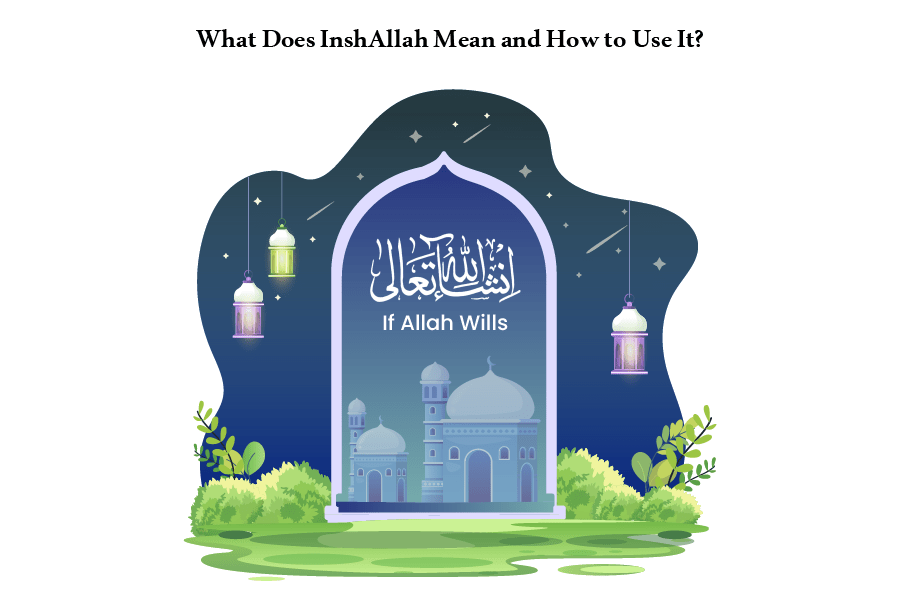Inshallah is a term that resonates deeply within the hearts of many, particularly among Arabic speakers and Muslims around the globe. This expression, which translates to "God willing," encapsulates a profound sense of hope and acceptance regarding the future. It serves as a reminder of the unpredictability of life and the necessity of faith in a higher power. In various cultures, particularly in Islamic traditions, inshallah is more than just a phrase; it is a way of life that intertwines with daily conversations, decisions, and even plans for the future.
Many people use inshallah in their everyday lives, whether they are discussing future events or expressing their intentions. It signifies not only the desire to accomplish something but also acknowledges that ultimately, the outcome lies in the hands of God. This perspective fosters a sense of humility and patience, encouraging individuals to strive for their goals while remaining open to whatever may come their way. Understanding what does inshallah mean is crucial for anyone seeking to engage with Arabic culture or the Islamic faith more deeply.
As we explore the essence of inshallah, we will delve into its linguistic roots, cultural significance, and the various contexts in which it is used. This journey will provide insights into how this simple phrase embodies a rich tapestry of beliefs and practices that shape the lives of millions. So, what does inshallah mean, and why does it hold such an important place in the hearts of so many? Let’s find out.
What is the Etymology of Inshallah?
The term inshallah is derived from Arabic, composed of three parts:
- In: meaning "if"
- Shallah: meaning "God wills" or "God willing"
When combined, inshallah conveys the meaning, "If God wills it." This acknowledges the belief that while humans can plan and aspire, the ultimate decision lies with God. This concept is deeply rooted in Islamic theology, emphasizing the importance of relying on divine will in all aspects of life.
How is Inshallah Used in Everyday Conversations?
Inshallah is commonly used in various contexts, from mundane daily activities to significant life events. Here are some examples of how the term is applied:
- When making plans: "I will see you tomorrow, inshallah."
- When discussing future aspirations: "I hope to graduate next year, inshallah."
- In response to someone’s inquiry about future events: "We will travel next month, inshallah."
The use of inshallah not only reflects an individual's faith but also promotes a culture of patience and acceptance of whatever outcomes may arise.
What Does Inshallah Mean in Different Cultures?
While inshallah is predominantly used in Muslim communities, its usage has extended to various cultures, often adapting to local customs and languages. In countries with significant Muslim populations, such as Indonesia, Turkey, and Pakistan, inshallah has woven itself into the fabric of social interactions. It is common to hear people use this phrase even when they are not practicing Muslims, showcasing its universal appeal as a phrase of hope and acknowledgment of fate.
Why is Inshallah Significant in Islamic Faith?
In Islam, faith in God's will is a fundamental principle. The Quran emphasizes the importance of submission to God's plans. Using inshallah not only reinforces this belief but also serves as a reminder to be humble and patient. It reflects the understanding that life is unpredictable and that trusting in divine will can provide comfort during uncertain times.
Are There Any Similar Expressions to Inshallah?
In various cultures, there are expressions similar to inshallah that convey a comparable sentiment of hope and reliance on a higher power. Some examples include:
- Deo volente: A Latin phrase meaning "God willing."
- Si Dios quiere: A Spanish expression translating to "If God wants."
- God willing: An English phrase often used in a similar context.
These expressions highlight a shared understanding across different cultures of the importance of divine will and the humility that comes with it.
How to Respond to Inshallah?
When someone says inshallah, a common response can be to simply acknowledge the sentiment. You may reply with:
- Inshallah, indeed! - Affirming the hopefulness of the statement.
- Ameen! - A term meaning "so be it" or "may it be so."
- I hope so too! - Expressing shared optimism for the future.
Responding in such ways fosters a sense of community and shared beliefs among individuals.
Conclusion: Embracing the Meaning of Inshallah
Understanding what does inshallah mean extends beyond a simple translation. It embodies a rich tradition of faith, hope, and acceptance, reminding us of the importance of humility in our aspirations. Whether you are planning your day, setting long-term goals, or navigating life's uncertainties, incorporating inshallah into your conversations can serve as a powerful reminder of the role of faith in your life. As we continue on our personal journeys, may we all embrace the spirit of inshallah, trusting in the divine plan that guides us.
Unlock The Fun: How To Recargar Monedas En Tik Tok
Unleashing Your Inner Villain: The Ultimate Kim Possible Shego Costume Guide
Unveiling The Enigma: The Life And Journey Of Hannah Marie Royal


